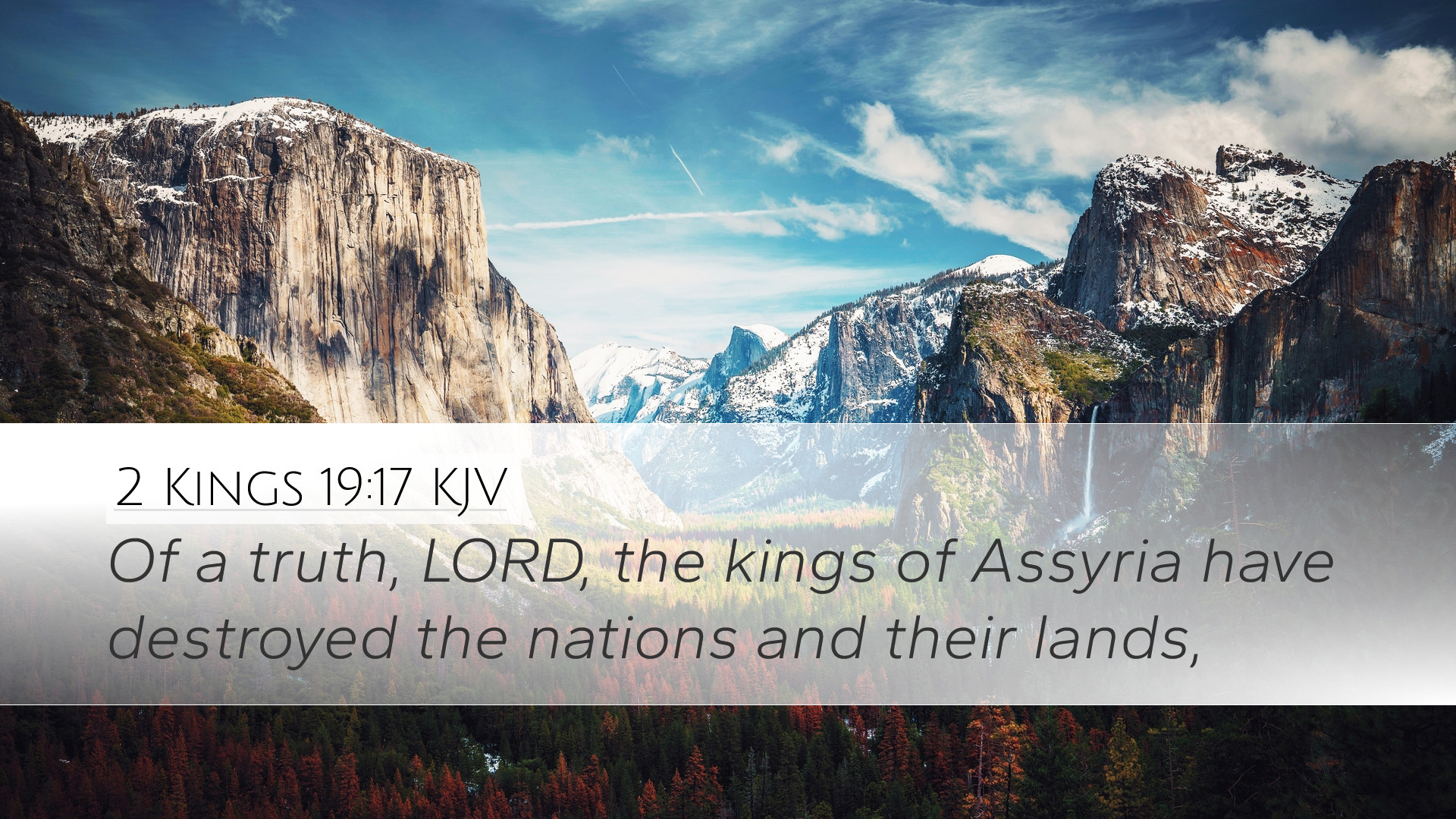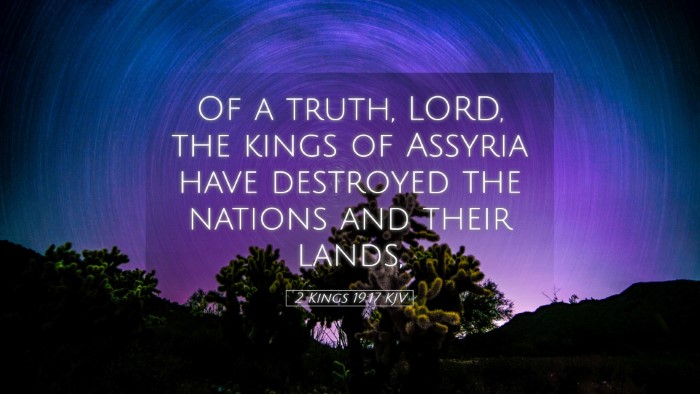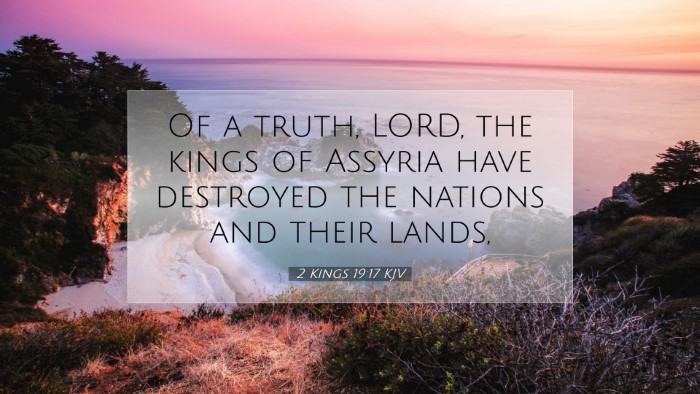Commentary on 2 Kings 19:17
Verse: “Of a truth, Lord, the kings of Assyria have destroyed the nations and their lands.”
Introduction
The context of 2 Kings 19 reveals a critical moment in the history of Judah during the reign of King Hezekiah. This passage is significant as it portrays the emotional and spiritual turmoil of a king confronted by the formidable military power of Assyria. The appeal to God in the face of overwhelming odds captures the essence of prayer, reliance on divine intervention, and the sovereignty of God amidst human calamity.
Historical Context
The verse arises within a broader narrative of King Sennacherib’s campaign against Judah. Past commentaries have emphasized the ruthless expansion of the Assyrian Empire and how it has left destruction in its wake (Barnes). The declaration in this verse acknowledges the Assyrians’ achievements and the devastation they brought upon other nations, setting the stage for Hezekiah's humble supplication and recognition of God’s authority over all nations.
Exegesis and Insights
The phrase “Of a truth, Lord” signifies Hezekiah’s acknowledgment of the reality of the threat posed by Assyria. This is a crucial aspect of biblical faith that acknowledges the existence of trouble while simultaneously looking towards God for deliverance. Matthew Henry points out that Hezekiah does not downplay the power of the enemy but instead brings the situation to God, illustrating a vibrant example of faith under pressure.
Hezekiah’s prayer resonates with a deep sense of humility; he recognizes not only the might of Assyria but also the necessity of divine intervention. Adam Clarke expands on this, indicating that acknowledging God’s sovereignty is the first step in the pathway towards redemption and liberation from sin and oppression.
Theological Implications
This verse impels believers to grapple with the reality of earthly challenges. The mention of the Assyrian victories serves as a reminder that God's people will face tribulations. However, the scripture encourages reflection on the nature of God as protector and deliverer (Henry). Theologically, it reaffirms God’s sovereignty and His ability to save His people from the grasp of seemingly overwhelming adversaries.
Moreover, it invites exploration of the theme of repentance and faith. In recognizing the assault of sin—symbolized by the Assyrian threat—believers are called to seek divine assistance and restoration through sincere prayer and intercession, not relying on their strength or strategies (Barnes).
Pastoral Applications
For pastors and church leaders, this passage highlights the importance of prayer in times of crisis. As Hezekiah turned to God, contemporary leaders can be encouraged to foster a culture of reliance on prayer within their congregations. This scripture can serve as a teaching point about facing adversity and recognizing that problems should be laid bare before God.
- Encouragement to Pray: Encourage congregations to bring their challenges to God openly, recognizing their limitations.
- Recognition of Powers: Address the reality of spiritual warfare and the importance of acknowledging adversarial forces—both physical and spiritual.
- Exhortation to Trust: Remind believers that just as Hezekiah trusted in God, they too must actively place their trust in divine providence.
Conclusion
2 Kings 19:17 serves as a poignant reminder of the struggles that believers face in a fallen world. It calls forth a response of prayer while recognizing the absolute power of God to intervene on behalf of His people. The insights derived from the commentaries remind us that in moments of distress, we may bring our concerns and fears before God, trusting in His goodness and sovereignty to respond to our needs effectively.


